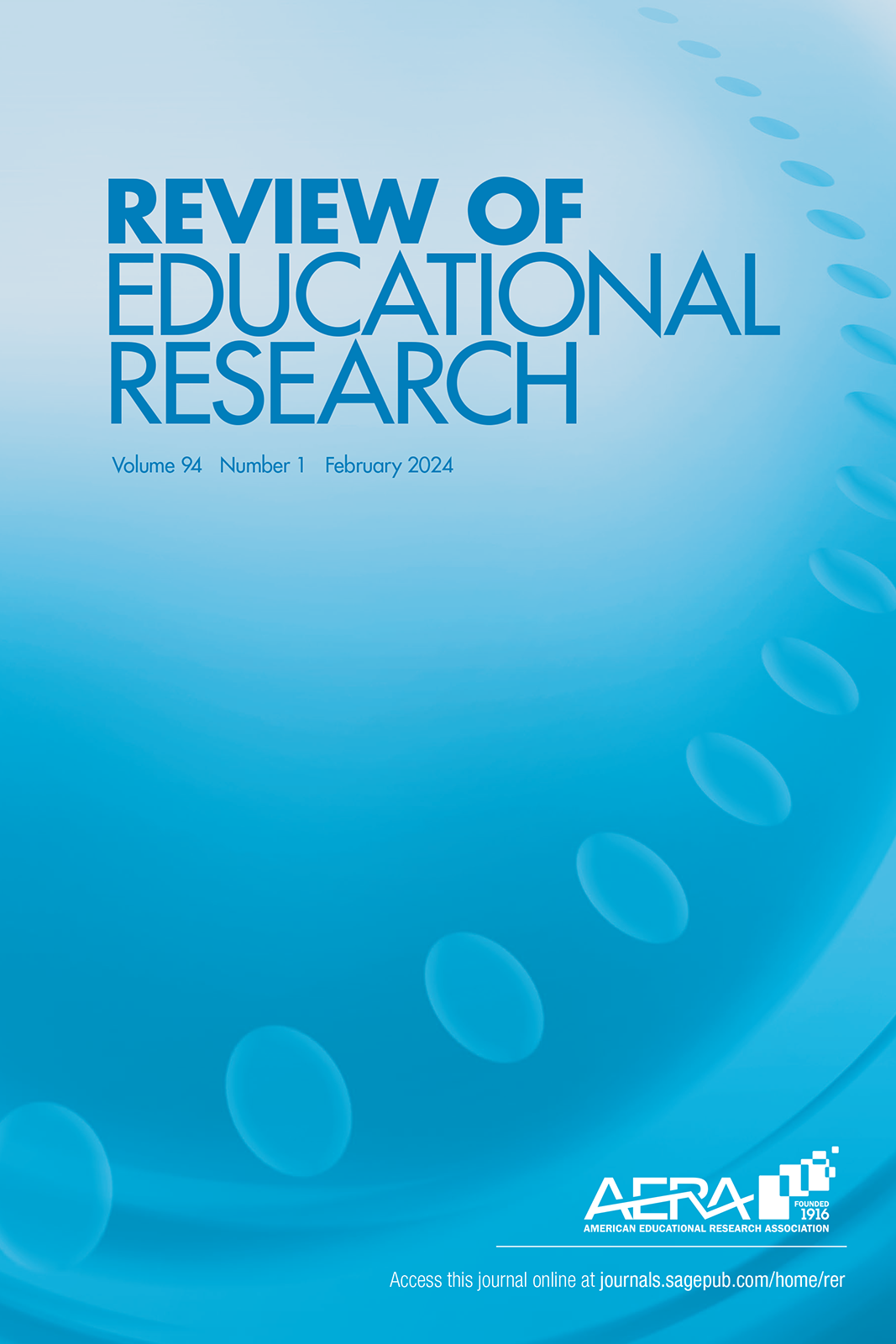Comprehensive Meta-Analysis of Attention-Deficit/Hyperactivity Disorder Psychosocial Treatments Investigated Within Between Group Studies
IF 7.4
1区 教育学
Q1 EDUCATION & EDUCATIONAL RESEARCH
引用次数: 12
Abstract
Interventions for attention-deficit/hyperactivity disorder (ADHD) include positive behavior supports (e.g., parent training, school-based contingency management, behavioral peer interventions), training interventions (e.g., organizational skills training, social skills training, etc.), and other interventions (e.g., academic accommodations/modifications, self-monitoring). There is a need to conduct a comprehensive meta-analysis of psychosocial treatments for ADHD given discrepancies between meta-analyses. The present meta-analysis reports the results of between-group studies that compared a psychosocial treatment to a control condition from 1968 to 2016. In total, 226 studies were identified that met inclusion criteria. Results of the meta-analysis were organized by treatment type, rater, and domain of outcome assessed. Results indicated considerable variability across these parameters, with the strongest effects for proximal outcomes of behavioral parent training (improvements in parenting behaviors yielded a standardized mean difference of 0.70) and improvements in child behavior following implementation of behavioral school intervention (standardized mean difference of 0.66 and 0.72 for teacher ratings of ADHD symptoms and impairment, respectively). Other interventions were not extensively studied as stand-alone approaches. Results are discussed in light of current support for the use of psychosocial interventions for individuals with ADHD.注意缺陷/多动障碍心理社会治疗组间研究的综合meta分析
注意力缺陷/多动障碍(ADHD)的干预措施包括积极的行为支持(例如,父母培训、学校应急管理、行为同伴干预)、培训干预措施(例如,组织技能培训、社交技能培训等)和其他干预措施(例如,学术适应/修改、自我监测)。鉴于荟萃分析之间的差异,有必要对多动症的心理社会治疗进行全面的荟萃分析。本荟萃分析报告了1968年至2016年将心理社会治疗与对照条件进行比较的组间研究结果。总共有226项研究符合纳入标准。荟萃分析的结果按治疗类型、评分者和评估结果的领域进行组织。结果表明,这些参数之间存在相当大的可变性,对行为父母培训的近端结果(父母行为的改善产生0.70的标准化平均差)和实施行为学校干预后儿童行为的改善(教师对ADHD症状和障碍的评分分别为0.66和0.72的标准化均值差)影响最大。其他干预措施没有作为单独的方法进行广泛研究。根据目前对ADHD患者使用心理社会干预的支持,对结果进行了讨论。
本文章由计算机程序翻译,如有差异,请以英文原文为准。
求助全文
约1分钟内获得全文
求助全文
来源期刊

Review of Educational Research
EDUCATION & EDUCATIONAL RESEARCH-
CiteScore
24.10
自引率
2.70%
发文量
28
期刊介绍:
The Review of Educational Research (RER), a quarterly publication initiated in 1931 with approximately 640 pages per volume year, is dedicated to presenting critical, integrative reviews of research literature relevant to education. These reviews encompass conceptualizations, interpretations, and syntheses of scholarly work across fields broadly pertinent to education and educational research. Welcoming submissions from any discipline, RER encourages research reviews in psychology, sociology, history, philosophy, political science, economics, computer science, statistics, anthropology, and biology, provided the review addresses educational issues. While original empirical research is not published independently, RER incorporates it within broader integrative reviews. The journal may occasionally feature solicited, rigorously refereed analytic reviews of special topics, especially from disciplines underrepresented in educational research.
 求助内容:
求助内容: 应助结果提醒方式:
应助结果提醒方式:


